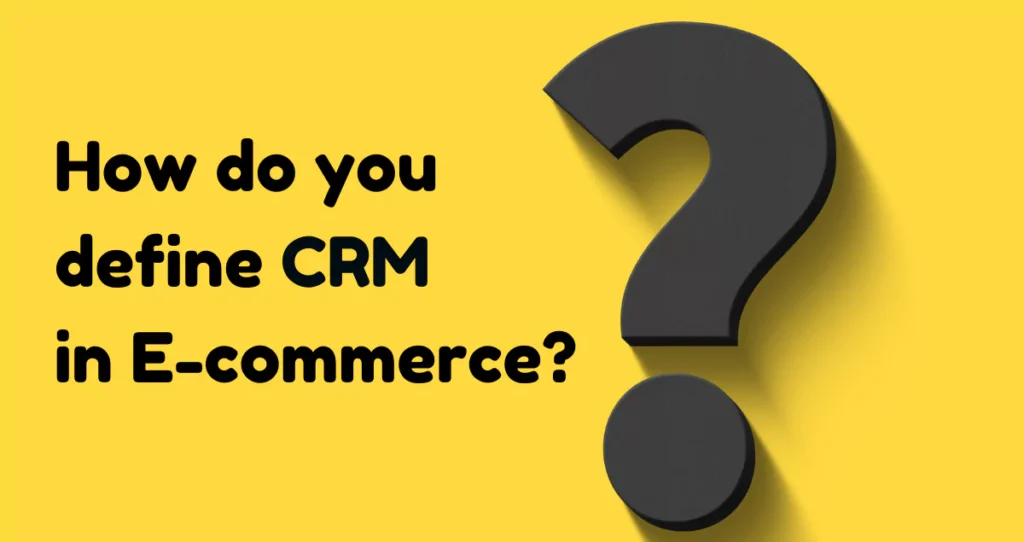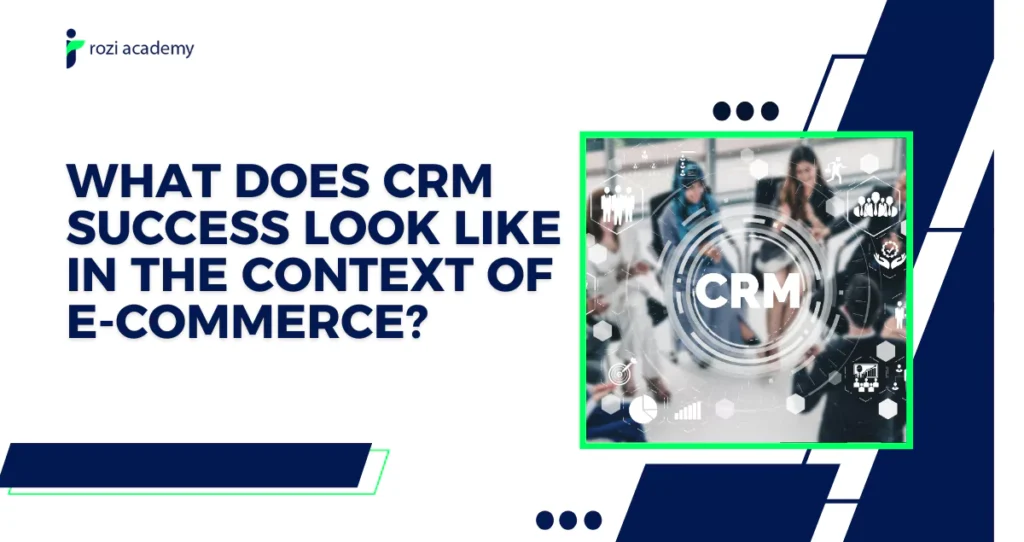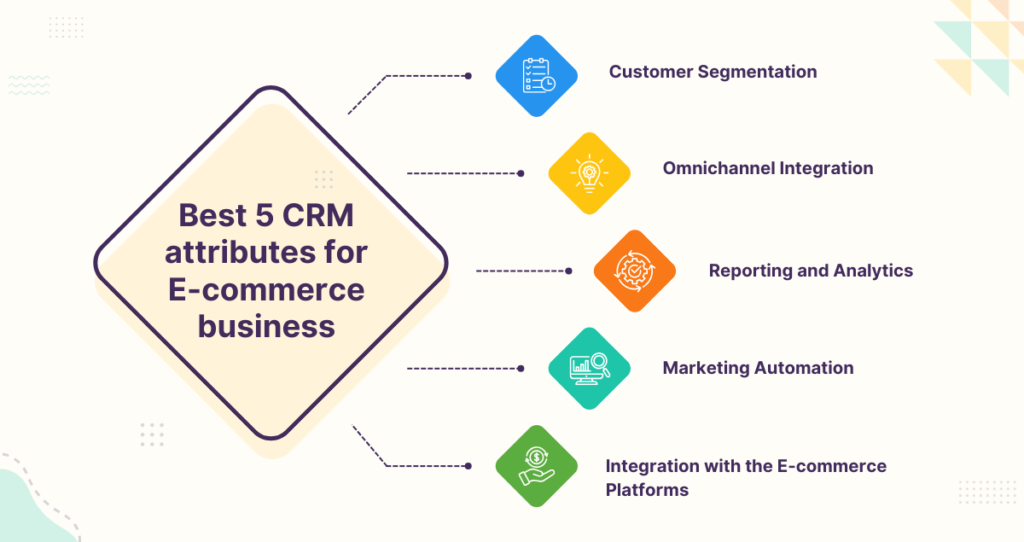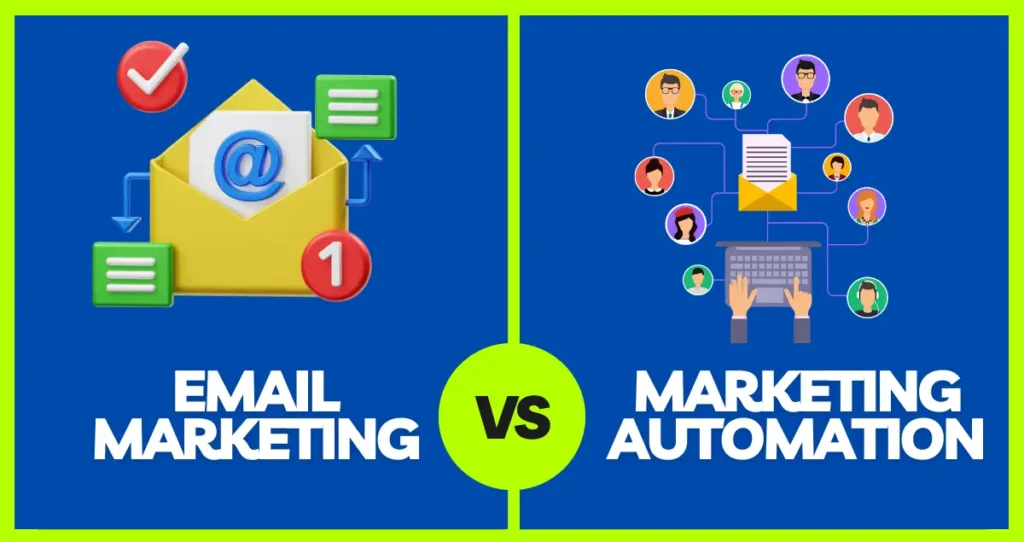Modern and successful e-commerce businesses cannot do without proper Customer Relationship Management or CRM. It assists in reducing inefficiencies, enhancing the interaction between an organization and its customers and maintaining sustainable revenue gains. Often, customer relationships are a business’s unique selling proposition in today’s highly competitive environment. But where and how can CRM drive growth for your e-commerce business? Let me explain how CRM can help grow your e-commerce business.
How do you define CRM in E-commerce?

In an e-commerce context, CRM is used as a marketing tool to enhance customer relationships in an E-commerce shop. Organizations can capture and store customers’ details, monitor communications, and manage processes.
For instance:
Now, one can think of a working system that records customer interactions or behavior, provides targeted promotions and remembers orders. That is why an e-commerce business has a CRM to do for it. That’s how CRM can lead to the expansion of the e-commerce company.
The cardinal importance of CRM in E-commerce:
- Reduces the workload of the client care team by taking over time-consuming processes.
- Promotes customer loyalty because marketing is personal in a way.
- Gives direction on customer behavior to enhance decision-making.
Thus, CRM helps you address customer needs so that loyalty experiences can be developed.
Workflow Automation

Success in e-commerce depends on businesses’ efficiency. CRM workflow automation minimizes the work that must be done manually, saving time and money.
Examples of WorkFlow Automation:
- Automated order confirmation emails Received Automatically.
- Follow-up calls /emails to customers seeking their feedback about the product or to sell them related products.
- Selected discount emails for customers based on the segment.
It is efficient and effective in adding value to customers’ mail messages. This is a good demonstration of how CRM can drive growth for your e-commerce business.
Previous Contacts
One of the things that experts understand is that the management of old contacts is vital for healthy relations. A CRM maintains records of past and present communications and transactions with a customer.
Why is it Important?
- Use in designing future communications regarding the receiver’s behavior
- Allows customer support teams to put information in perspective.
- It sustains loyalty through targeted marketing, such as item-based recommendations.
For instance:
If a customer spends more on athletic shoes, the CRM will recommend new arrivals in the same category. This approach shows the effectiveness of CRM in developing an e-commerce venture.
Monitor contact with the customer.

Recording each type of touchpoint with a customer is necessary for a firm to provide continuous and excellent service. A CRM records all calls, emails, and social media conversations in one central location.
The Advantages:
- Reply to customer inquiries within a short duration.
- Increased ability to provide customers with consistent support enhances their satisfaction level.
- It is possible to use interaction data on customers to improve customer strategy.
These may also make customers return to your store because they feel listened to and appreciated. Recording these interactions adequately shows how CRM can drive growth for your e-commerce business.
What does customer relationship management success look like in the context of E-commerce?

An efficient CRM process includes the steps of data gathering and analysis to optimize communication and foster client satisfaction.
Acquiring and Evaluating Business Information
CRM systems also gather other information, such as purchase histories, opened websites, and preferences. This information is valuable in developing target market campaigns.
For Instance:
Examining the cart abandonment levels to identify how to target the customer again.
Enhancing Customer Relations
CRM makes it possible for the businesses involved to make individual calls and extend customized product promotions.
For Instance:
Campaigning through birthday vouchers to customers classified under the company’s loyal cardholders.
Promoting Total Customer Satisfaction
Happy clients will advise others to use your services and buy from you again. CRM tools are applied to timely support messages and thank you messages.
For Instance:
Sorting complaints faster with the help of an issue-tracking system.
Which CRM Software Are Most Effective for the Growth of E-Commerce Enterprise?
CRM tools are critical in e-commerce growth because they enable businesses to foster proper relations, boost conversion rates, and increase efficiency. Below are some of the best bets one can take.
HubSpot
HubSpot provides an amazing CRM platform with a simple interface and highly effective automation for businesses of all sizes. For instance, an online store can use HubSpot’s email automation to send special offers to clients who previously shopped at the store, with the aim of converting these customers.
Salesforce Commerce Cloud
As an open hybrid, Salesforce Commerce Cloud is built to enhance e-commerce through unique consumer experiences. For example, a clothing store can make recommendations based on customers’ past purchases, increasing their click-through rates and, thus, their sales.
Zoho CRM
Zoho CRM merges sales, marketing, and customer support, making it one application. For instance, a business selling electronics can effectively nurture leads, send emails to the leads and make them customers by using Zoho’s automated workflows.
SugarCRM
The SugarCRM system provides various configurations for handling customer relationships. For instance, a furniture store can create a platform to follow a customer’s preferences and show related products, enhancing sales conversions.
Microsoft Dynamics 365
Microsoft Dynamics 365 offers customer relationship management and enterprise resource planning in one package. A home goods retailer could link sales and inventory to inform customers about product availability in real-time, thus increasing satisfaction.
Zendesk
The most common customer service software, Zendesk, offers a ticketing system and the function of live chat. An online beauty brand can adopt Zendesk to reply to customer enquiries more efficiently, which enhances the satisfaction and loyalty of the customers.
Lime CRM
Since Lime CRM is versatile and has the capacity for expansion, it is ideal for expanding organizations. An organization can be a sports apparel brand that would use Lime to control customer information and generate persuasive advertisements to retaliate for an increase in sales, culminating all year round.
Pipedrive
Pipedrive is a CRM software application designed to manage a business’s sales pipeline and, hence, close deals for the business. For instance, an e-commerce shop selling technology gadgets may map and monitor the firm’s sales leads to determine which ones are likely to purchase.
Apptivo
Apptivo offers all the essential features of a CRM solution, including project management and invoicing. For instance, a digital marketing agency with e-commerce clients can use Apptivo to track leads or campaigns or even effectively deal with clients.
Getting Your CRM Right For E-commerce And Motivating Consumers With Just A Dial

CRM must be managed to ensure future customer commitment is achieved. Here’s how to do it effectively:
Use segmentation:
Divide the group of customers by purchase patterns and demographic segmentation.
Leverage data:
Some changes require you to identify market trends to meet the world’s needs.
Train your team:
It’s also important that employees make optimal utilization of CRM tools.
CRM creates a pleasant, nurturing environment that retains customers and increases order frequency when properly implemented. This is the sum and substance of how CRM can drive growth for your e-commerce business.
Best 5 CRM attributes for E-commerce business:

However, different features can significantly affect your e-commerce strategy when implemented in a CRM.
Customer Segmentation
Categorize your group of customers for effective implementation of marketing segmentation strategies. Segmentation proves helpful in responding to the needs of consumers barrier by barrier.
Omnichannel Integration
Integrate all interaction methods within one system, including email, social networks, and phone calls. For example, Answer a question initiated through an Instagram comment by email.
Reporting and Analytics
Learn customer behavior and analyze campaign success. Measurement and analysis help avoid or correct errors in policies and approaches.
Marketing Automation
Mail is used as emails, and Facebook promotes post reminders or follow-ups. Time-efficient while enhancing interaction with various events.
Integration with the E-commerce Platforms
CRMs should easily let companies sync their data with online store managers such as Shopify or WooCommerce to track orders.
Which of the CRM is suitable for small e-commerce businesses?
There are many fantastic choices. HubSpot, Zoho CRM, or Salesforce are affordable yet provide many fabulous characteristics.
How does CRM help increase customer retention?
CRM helps in marketing and supporting clients on a personalized basis and making decisions based on results that help in high retention rates.
Is it possible to integrate CRM systems to capture massive amounts of customer information?
Indeed, contemporary CRMs are designed to handle and process all the potential heaps of data.
How much does CRM cost to implement for e-commerce businesses?
The fees depend on the selected platform and included functions and can be from $20 to $150 monthly for small companies.
How does Rozi Academy assist you in understanding how CRM Can Drive Growth for Your e-commerce business?
How can CRM help your e-commerce business grow? Rozi Academy educates and offers targeted solutions to accomplish that. They provide practical advice on how organizations can best use CRM tools to improve organizational efficiency and increase customer satisfaction. You can get beneficial stuff with these resources and have professional training. You can understand how to use all the features of CRM, such as automatic promotion and analytics, that can increase sales. Furthermore, Rozi Academy helps you keep up with the competition by ensuring your CRM is ready for the long haul in e-commerce.
Conclusion
CRM is the foundation on which every successful e-commerce company is built. It assists you in such a process as managing relationships, maintaining high levels of customer satisfaction, and constant sales increase. Focusing on the right CRM tools is necessary to make a long-term investment and guarantee customer loyalty. At Rozi Academy, we assist online stores & e-commerce entrepreneurs to reach their full potential. So, start your CRM journey today and look at how CRM can bring improvement and boost to your e-commerce company. Visit Rozi Academy and learn more.







